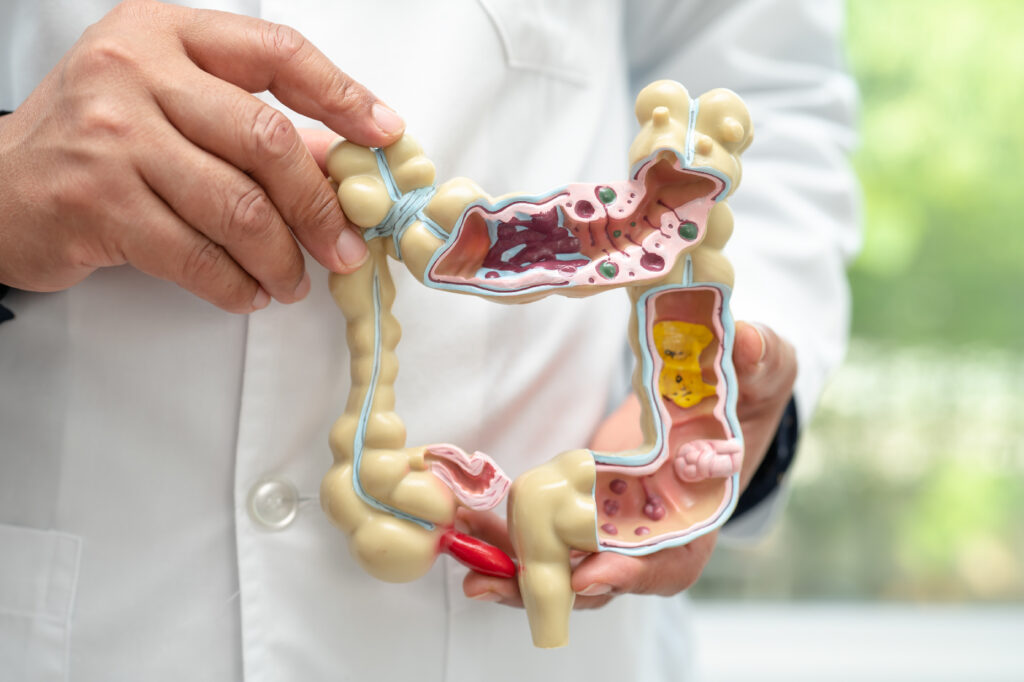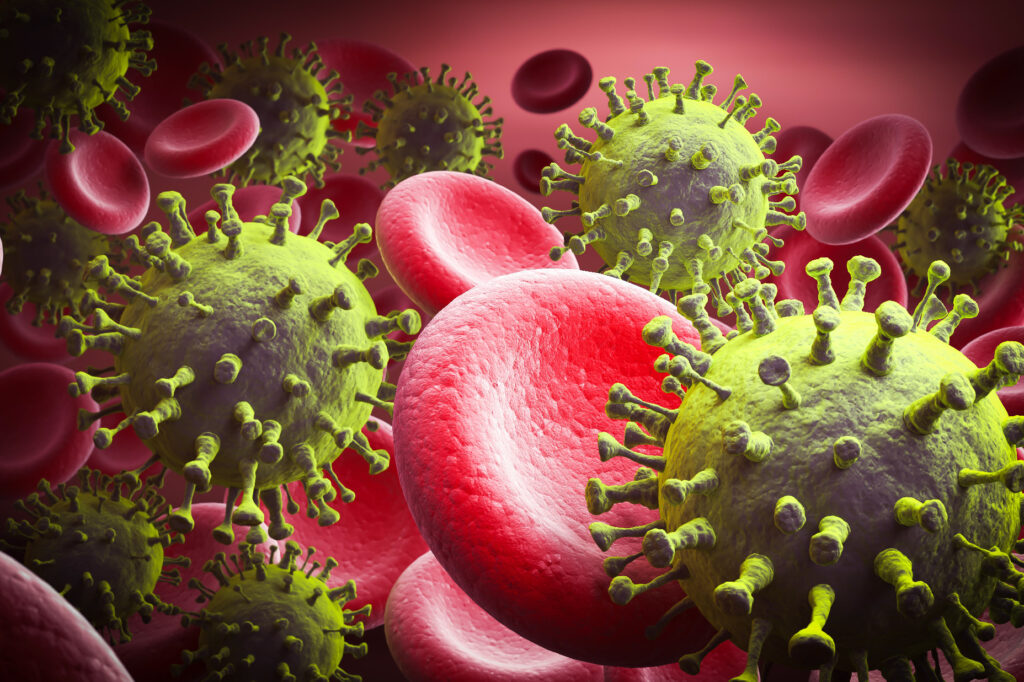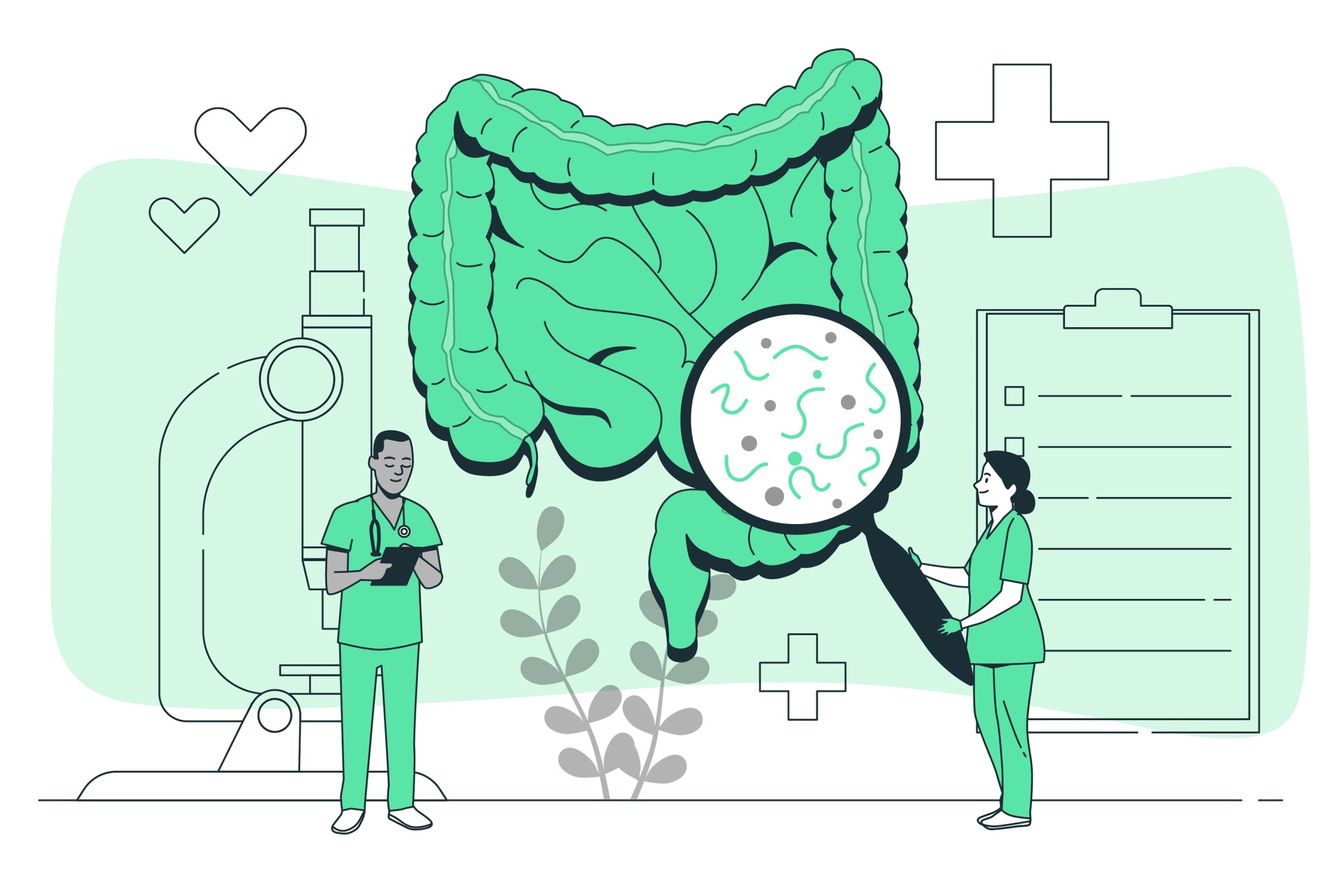Do You Know the Bacteria in Your Gut Weighs More Than Your Brain? Yes, there are over 100 trillion microbes of 5000 different species in your gut, weighing nearly 2 Kilograms. This means there are over 10x the number of microbial cells in the human gut than in the whole human body! This makes up for the term “gut microbiome” which is a complex and dynamic community of microorganisms residing in the gastrointestinal tract. Our gut microbiome plays a crucial role in the digestive system and makes up roughly 70% of our immune system.
The gut microbiome influences various physiological processes, including digestion, metabolism, immune function, as well as psychological processes including your mental health. So let us explore the diverse array of microorganisms that inhabit the gut, their roles and all you need to know about them.
Types of Microorganisms in Human Gut

Let’s take a dive into the bustling world inside your gut, where countless tiny inhabitants work together to keep you healthy and thriving. There are mainly four kinds of microorganisms in your gut.
- Bacteria: Bacteria are the predominant microorganisms in the gut microbiome, with thousands of different species which coexist in a balance. Beneficial bacteria such as Bifidobacterium and Lactobacillus contribute to gut health by aiding in digestion while bad bacteria like E coli and Clostridium difficile can disrupt gut health. We’ll talk more about that in the following section.
- Viruses: Are also present in the gut microbiome are Bacteriophages, or viruses that infect bacteria. The viruses play a role in modulating bacterial populations, influencing microbial diversity, and shaping the composition of the gut microbiome. But while some of these viruses contribute to bacterial balance, others can lead to dysbiosis and or viral diseases under some conditions.
- Fungi: Fungi like yeasts and molds, aren’t as abundant as Bacteria or Viruses, but are still an important component of the gut microbiome. For example, species like Candida albicans influence gut health and immune function. These Fungi positively interact with bacteria and other microorganisms in the gut, contributing to overall microbial balance and diversity.
- Archaea: Coming to the least abundant microorganisms, Archaea also contribute to microbial diversity and metabolic functions in the gastrointestinal tract. For example Methanogenic archaea produce methane gas during microbial fermentation which influences digestive processes and gut motility.
Now let us talk about the most crucial microorganism in our gut aka Bacteria. It is important to understand the composition and role of our Gut Bacteria as these tiny inhabitants play a significant role in our overall health and well-being.
Types and Role of Gut Bacteria

There are basically three types of bacterias in your gut – good, bad, and opportunistic. Good bacteria, also known as beneficial or probiotic bacteria are found in fermented food, probiotic supplements, and dairy products. They perform a variety of positive functions including:
- Digestion and Metabolism: Good bacteria helps produce short-chain fatty acids and other beneficial metabolites that nourish the gut lining and support digestive health.
- Immune Regulation: Beneficial bacteria interact with the immune system, defend us against harmful pathogens, and help maintain gut barrier function. This prevents the invasion of pathogens and harmful substances into the bloodstream.
- Production of Essential Nutrients: Some good bacteria synthesize vitamins like vitamin K or Vitamin B, which are essential for various physiological processes.
- Protection Against Pathogens: Good bacteria compete with harmful bacteria for nutrients and resources to occupy the gut. This limits the growth of pathogenic microbes and reduces the risk of infections and inflammatory conditions.
Talking about harmful or bad bacteria, such as E. Coli, C. difficile, H pylori, etc, let us find out how they affect you:
- They can cause Inflammation in the gut lining, disrupting gut barrier function and cause various health problems, including inflammatory bowel diseases (IBD) and metabolic syndrome.
- They produce toxins and harmful metabolites that can damage the intestinal epithelium and contribute to tissue inflammation and injury; for example, C difficile produces toxins that can cause severe diarrhea and colitis.
- Sometimes they outcompete beneficial bacteria and disrupt microbial balance, leading to dysbiosis. These imbalances can cause gastrointestinal disorders, metabolic disorders, and autoimmune diseases.
Aside from these two, you also need to know about opportunistic bacteria. These traitorous backstabbers are usually harmless or even beneficial in healthy individuals. But the moment your body is weak and lowers its defenses, they switch sides and become dangerous. These bacteria like Pseudomonas aeruginosa, S. aureus, P. mirabilis etc, exploit vulnerable immune systems and help the bad bacteria prevail.
In conclusion, your gut microbiome is all about balance, and as long as that balance prevails, your gut will stay healthy. To not let that imbalance take place, you need to maintain a higher good bacteria count, which you can do by increasing your probiotic consumption and adopting a healthier lifestyle.
REFERENCES
1. Harvard – https://www.hsph.harvard.edu/nutritionsource/microbiome/
2. NIH – https://www.ncbi.nlm.nih.gov/pmc/articles/PMC4566439/
4. Cleveland Clinic – https://my.clevelandclinic.org/health/articles/24494-bacteria
5. Learn Biology Online – https://www.biologyonline.com/dictionary/opportunistic-pathogen
FAQ’s
Q. What foods increase gut bacteria?
A. Foods that increase gut bacteria include fiber-rich foods like fruits, vegetables, whole grains, legumes, and nuts. Fermented foods such as yogurt, kefir, sauerkraut, kimchi, and kombucha also promote the growth of beneficial bacteria. It is also advised to take prebiotic foods like garlic, onions, leeks, and asparagus nourish gut bacteria, which support the probiotics.
Q. What kills gut bacteria?
A. Many substances and behaviors can harm the good bacteria in the gut. For example, antibiotics kill gut bacteria, including both harmful and beneficial strains, completely disrupting the microbial balance. Excessive alcohol consumption can also harm gut bacteria, leading to dysbiosis. Processed foods high in sugar and unhealthy fats, as well as artificial sweeteners, can also negatively impact gut bacteria. Similarly, if you have a poor lifestyle and do not consume enough prebiotics/fibers, the good bacteria will start depleting and the bad bacteria will thrive.
Q. What fruits are high in probiotics?
A. First of all fruits themselves are not high in probiotics, however they can support gut health indirectly by providing prebiotic fiber to nourish beneficial bacteria. Examples include bananas, apples, berries, kiwi, and citrus fruits. Pairing these fruits with probiotic-rich foods like yogurt or kefir can enhance gut health because they serve as the food for the good bacteria in your gut.
Q. How many bacteria are in the human body?
A. The human body is home to trillions of bacteria, with estimates suggesting that there are approximately 30 to 40 trillion bacterial cells inhabiting the human body.
Q. Is too much good bacteria bad for you?
A. While good bacteria are important for gut health, excessive amounts may lead to bloating, gas, and gastrointestinal discomfort. Additionally, some probiotic strains may pose risks for immunocompromised individuals. Therefore, moderation and balance are the keys to a healthy gut.
Q. What if bad bacteria never existed?
A. You may not believe it but the consequences of not having bad bacteria in your gut could be really bad. Without bad bacteria, the immune system will not be able to develop proper defenses. This would leave your body vulnerable to the entry of external harmful bacteria and cause severe infections. Also, the absence of harmful bacteria can disrupt balance in your gut, affecting nutrient cycling and biodiversity.




